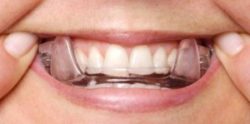Dr. Jason Baldwin is dedicated to helping you maintain not only your dental health but your best overall quality of life. In addition to providing comprehensive, personalized dental care for all of your oral health needs, Dr. Baldwin works with patients to diagnose and treat sleep disorders, including obstructive sleep apnea (OSA).
What is Obstructive Sleep Apnea?
Obstructive sleep apnea is when a person repeatedly stops then starts breathing while they are asleep. The breathing ceases when the throat muscles relax and block the airway. This is a potentially dangerous disorder that should be treated due to the damage it can do to your overall health.
A person can stop breathing for 10 seconds or even longer cutting off oxygen to the blood. People wake up gasping for air, choking, snorting, or with shortness of breath when this happens. This pattern can repeat many times during sleep. However, loud snoring and waking up feeling tired still are some of the main symptoms.
More than just the cause of your nightly snoring, OSA can present many health risks as well as debilitating symptoms that affect daily life. Effective treatment will restore your quality of sleep- and reduce your risk of cardiovascular and systemic diseases that are often made worse by sleep apnea. Sudden drops in oxygen levels can increase blood pressure putting a strain on one’s cardiovascular system.
Many people develop high blood pressure who have suffered from OSA. The more severe cases of OSA can even lead to stroke, heart attack, heart failure, and coronary artery disease. Sleep apnea also affects your partner and their ability to get a good night’s rest as well possibly leading to a strain in the relationship.
Are You At Risk for Sleep Apnea?
Common risk factors include:
- Being overweight or obese
- Being a smoker
- Having high blood pressure (hypertension)
- Having a large neck circumference
- Chronic nasal congestion
- Narrowed airway
- Suffering from diabetes
- Having Asthma
- Having a family member with sleep apnea
Signs & Symptoms of Sleep Apnea
Understanding and recognizing the common signs of sleep apnea is important for seeking treatment that will improve your health:
- Feeling groggy or sleepy during the day
- Dry mouth in the morning
- Snoring
- Headaches in the morning
- Difficulty concentrating
- Restless sleep, sudden waking
Treatment for Sleep Apnea
The CPAP is considered the “gold standard” of treatment for OSA, but the discomfort and inconvenience associated with the machine often lead to non-compliance among patients. This can lead to a resurgence of symptoms and health risks.
 Dr. Baldwin offers effective oral appliance therapy to treat sleep apnea in patients with mild to moderate OSA. Oral appliance therapy uses a comfortable, custom-fit mouthguard that will reposition the jaw to avoid the collapse of soft tissue at the back of the throat that is characteristic of OSA.
Dr. Baldwin offers effective oral appliance therapy to treat sleep apnea in patients with mild to moderate OSA. Oral appliance therapy uses a comfortable, custom-fit mouthguard that will reposition the jaw to avoid the collapse of soft tissue at the back of the throat that is characteristic of OSA.
Oral appliance therapy is usually well tolerated by most patients and offers key benefits that significantly improve compliance:
- Patients can drink fluids and speak clearly while wearing the appliance
- Portability- your appliance fits into a small plastic case for travel
- More comfortable when sleeping than the CPAP machine, allowing freedom of movement while asleep
Sleep Apnea FAQs
What foods cause sleep apnea?
Foods that are high in dairy are known to increase the body’s mucus production. This can cause blockages worsening your sleep apnea symptoms. Weight gain can also worsen sleep apnea due to the buildup of fat around the esophagus and narrowing of the airways.
What is the best position to sleep if you have sleep apnea?
Patients with sleep apnea are encouraged to sleep on their side to help airflow and decrease attacks. The right side is best because it reduces snoring and helps with blood flow.
What are the 3 types of sleep apnea?
There are three main types of sleep apnea. Obstructive sleep apnea, central sleep apnea, and complex sleep apnea. The most common is obstructive sleep apnea, which we can help manage at our dentist office.
